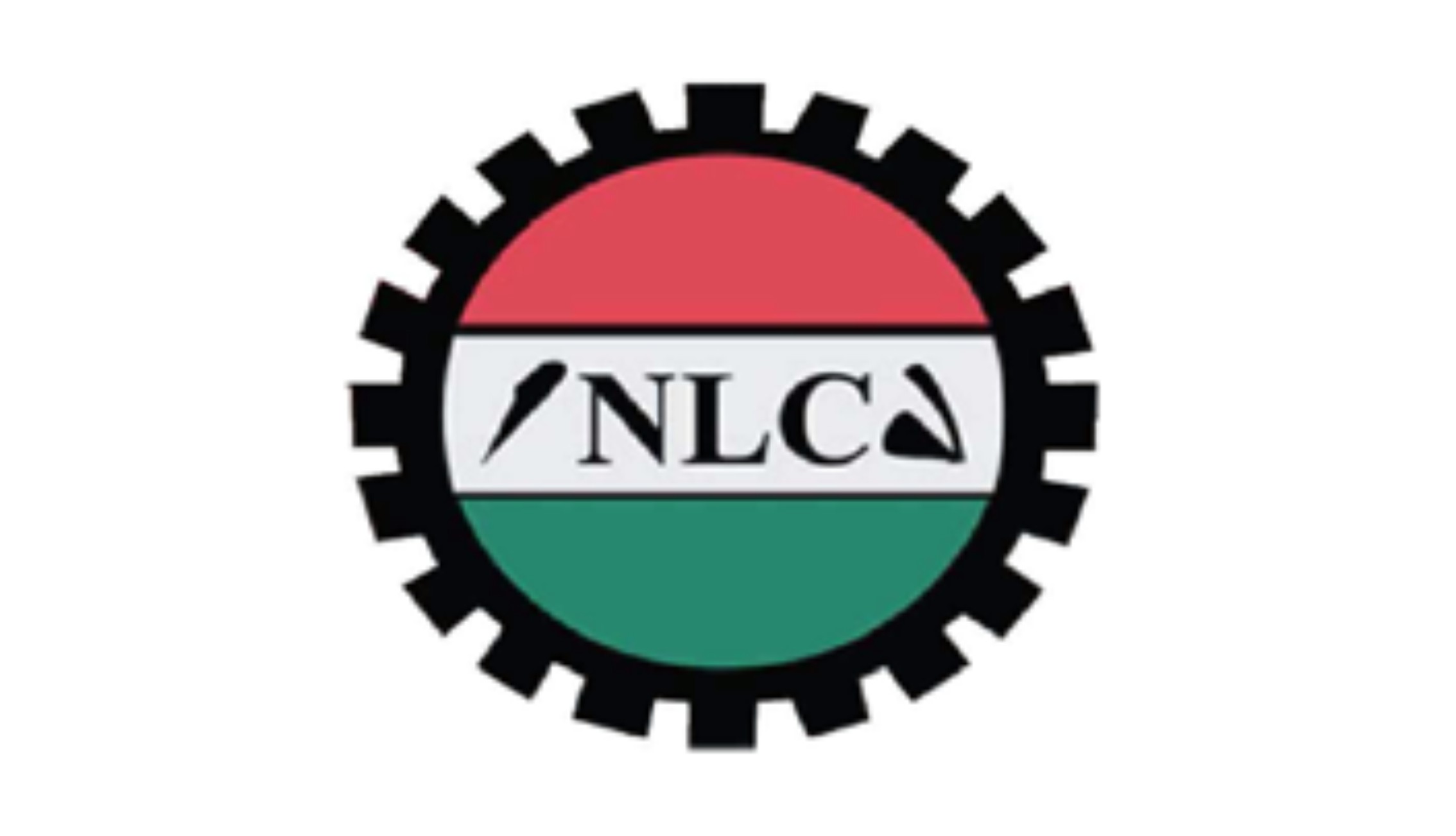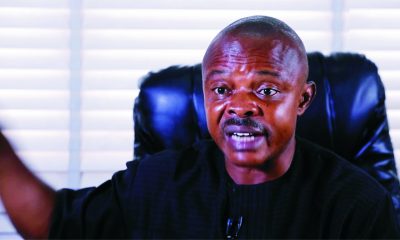Editorial
Declaring National Emergency In Education
If any proof was needed about the bleak future that has been facing Nigeria’s education system in the past two decades, the mass failures that have continued to be recorded in the West African School Certificate Examinations (WASCE) and other allied public exams in the past three years are concrete enough. In 2008, for instance, out of the 1,369,142 candidates that sat for the WASCE, only 188,422 or 13.76 per cent passed with five credits, including English Language and Mathematics. That means that about 83 per cent of the candidates failed to meet the minimum requirement for admission into the nation’s universities.
Again, in 2009, no significant improvement was recorded. Of the 1,373,009 candidates that sat for the exams, only 25.99 per cent or 356,981 candidates obtained credit in English Language, Mathematics and three other subjects. Rather than improve in 2010, the number of candidates that obtained credit in English Language, Mathematics and three other subjects dropped or 24.94 per cent on 337,071 candidates.
Irked by this inglorious situation, President Goodluck Jonathan convened the just concluded two-day summit on the ailing sector. According to him, “we had a situation where our educational sector no longer produces the kind of people we expect. The rate of failure is so alarming and we need to ask, what is happening?”
If the picture of secondary level of education is grim, university education in Nigeria is even grimmer. The very concept of ‘university’ connotes universality. There have, however, been grave doubts as to how much universality we still have in our universities. What is implied here is universality of thought, of ideas, outlook and composition. However, a peep into the average Nigerian university clearly does not suggest the cosmopolitan atmosphere which permeated the older tertiary institutions in the 1950’s, 60’s, and 70’s.
For example, one of the contributory factors to the emasculation of the Nigerian university is the continuously weak national currency that has created a poor remuneration package that can hardly attract academics from across national frontiers. There is also the debilitating problem of funding. Surely, poor funding of the education sector has resulted in decaying infrastructural base at all levels of the educational system. In some cases, there is total absence of teaching aide, laboratories, and modern libraries.
The quality of education that the teachers themselves need in order to deliver quality education to pupils and students in schools and institutions of learning, need further examination. Just as President Jonathan pointed out that schools existed in the past with hardly a graduate teacher but still people read and passed their examinations with alphas. Even where excellent results are recorded these days, it is sometimes suspect and often attributed to exam malpractice because given the myriad of problems faced by students, teachers and the entire education system, dismal performances such are being recorded now are only to be expected. A school system that hardly runs without incessant disruptions is bound to produce students whose learning and assimilation sequence has been distorted and disrupted time and again.
With growing cases of shabby treatment meted out to teachers by the government, teachers themselves have also lost every sense of commitment and passion for the once-prized teaching profession. These days, many teachers are also petty traders, using the teaching profession only as a camouflage. Thus, they have little or no time for their students. This contrasts sharply with the days of yore when teachers took their profession seriously because government took teachers seriously.
The absence of school supervision is another reason for the unending decay in the sector. In the hair days of educational development in Nigeria, school inspectors played a major role in the maintenance of discipline among school teachers. Teachers lesson notes and students work books were examined. The school environment was inspected for neatness while teachers and students were also observed in class. These measures were aimed at instilling discipline and maintaining a high level of academic standard. Sanctions were imposed through punitive transfers, demotion, expulsion and outright sack. The rules which were strictly enforced created a pervading spirit of competition among students, teachers and schools, as the case may be, and resulted in the high academic standard and discipline that were recorded.
It is indeed public knowledge that the education sector has been on a progressive decline in the past two decades.
It is against this backdrop that The Tide views the mass failures as an immediate outward manifestation of a protracted disease that has plagued the education system in Nigeria. Even though a two-day summit may be too short to properly diagnose and proffer remedies for the problems of this key sector, it has, at least, sensitized the various stakeholders on the need to begin proactive measures to address the situation.
One way forward is for the Federal Government to immediately declare a national emergency in the sector. Perhaps, a cue can be taken from the Rivers State Government where such summit at the beginning of the present administration resulted in the ongoing revolution in the education sector in the state. The Rivers State Government is already on its way to replacing all existing school infrastructure. This is after it took over the funding of primary education from the local government authorities. There is also massive training and retraining of teachers. In addition to making primary education tuition free the Rivers state government has also gone ahead to launch free school uniforms and books for pupils in all public schools.
The Tide urges the Federal Government to take the bold step of declaring a state of emergency in the education sector as a sure way of realizing the goals of the new road map announced by President Jonathan, last Thursday.
Editorial
May Day: Let Nigerian Workers Breathe

Nigerian workers observed this year’s May Day on the 1st of May in a somber tone, offering little cause
for celebration. The purpose of this day is to acknowledge the important role of workers in contributing to the growth and development of society. The occasion is celebrated with tremendous enthusiasm across the world. Ever since achieving independence, the labour movement in the country has persistently raised concerns regarding the country’s protracted battle for effective governance.
This year’s May Day theme, “Reclaiming the Civic Space in the Midst of Economic Hardship,” underscores a critical issue facing societies worldwide. In an era marked by rising living costs, stagnant wages, and growing unemployment, economic hardship has become a pervasive challenge impacting individuals, families, and entire communities. Against this backdrop, the theme serves as both a rallying cry and a call to action—urging workers to assert their rights, amplify their voices, and actively participate in civic life. It highlights the pressing need to protect and expand civic space even in the face of adversity.
A confluence of economic woes plagues Nigerian workers, which paints a bleak picture of their current realities. High unemployment casts a long shadow, while hyperinflation erodes purchasing power and deepens financial insecurity. This dire situation is further exacerbated by pervasive insecurity, widening income inequality, and the persistent issue of abysmally low wages that fail to meet basic needs. The hardships have only intensified following President Bola Tinubu’s policy decisions to remove petrol subsidies and allow the naira to float, further straining the already stretched resources of ordinary Nigerian workers.
The cost-of-living crisis in the country is a flinty reality for its workforce, exacerbated by the persistent issues of low wages and rising unemployment. While the official unemployment rate may appear to have drastically improved to 5.0 per cent after the National Bureau of Statistics’ rebasing in 2023, many view this figure with skepticism, remembering the previous rate of 33.3 per cent. The reality for many Nigerians is far more challenging, particularly for young people, who face an unemployment rate of 18 per cent.
Nigerian workers are facing a severe economic crisis that is impacting every aspect of their lives. Rampant inflation, eroding purchasing power, with food inflation hitting a staggering level. This dramatic surge in prices is outpacing wage growth, leaving many struggling to afford basic necessities. The volatile exchange rate, with the naira fluctuating wildly against the dollar, adds another layer of instability.
The nation’s economy faces a precarious situation, teetering on the brink of crisis. With a staggering 98 per cent of Federal Government revenue dedicated to debt servicing, very little remains for essential public services and infrastructure development. This dire fiscal constraint is compounded by the country’s high crude oil production costs, severely limiting profitability and undermining the oil sector’s potential contribution to national revenue.
Simultaneously, the economy is suffering from a sharp decline in Foreign Direct Investment (FDI), signalling a loss of investor confidence and further exacerbating the economic downturn. The exorbitant cost of governance acts as another significant drain on public finances, diverting resources away from crucial areas like healthcare, education, and infrastructure. Additionally, many state governments are unable to implement the current 70,000 minimum wage. Their usual excuse is that the resources are not there. Several of them owe salaries and pensions.
Workers are notably disadvantaged in terms of their understanding and ability to avail themselves of middle-class securities and privileges. It is observed that basic amenities such as family vacations, social security, health insurance, and mortgage loans, which are common in other parts of the world, are considered to be a luxury in our country. As a result, workers are at risk of being poor, and this implies that they are only a paycheque away from falling into abject poverty.
While public sector job opportunities are finite, a favourable environment can enable the private sector to generate additional employment. The Nigeria Labour Congress and Trade Union Congress should unite to advocate for a transparent, vibrant private-led economy that creates jobs and prosperity for all workers. Governments at all levels should enhance workers’ welfare by operating efficient administrations based on contemporary business principles. State governors must make timely payment of salaries and pensions their priority.
A suitable work environment, and the provision of a living wage, should be given utmost priority by all tiers of government. The growing number of strikes across Nigeria underscores the urgent need for the authorities to tackle the problem. It is distressing that the national minimum wage in our country is below the estimated monthly maintenance cost of a typical pet dog in the United Kingdom.
This year’s May Day presents an opportunity for both federal and state governments to tackle the increasing unemployment rates across the nation by formulating effective strategies aimed at generating additional job opportunities. The authorities can expedite their commitment to assist millions of Nigerians in breaking free from poverty by creating additional job opportunities within the agriculture sector, which possesses the capacity to employ a large number of individuals.
To strengthen its economic stability, the Nigerian government should actively seek to decrease its dependence on crude oil. Nigeria has the opportunity to build a stronger financial future by directing resources towards diversifying its economy, especially through investments in the agricultural sector and solid mineral industries. Implementing this well-thought-out strategy has the potential to strengthen economic stability and foster sustainable practices across different industries. Moreover, they are required to deal with the rising levels of insecurity that result from clashes between herders and farmers, in addition to the problems associated with banditry and insurgency.
Editorial
Reforming Nigeria’s Prison Crises
The news of the Koton Karfe prison break in Kogi State, were met with a degree of resignation, underscores a
deeply troubling and recurrent crisis within Nigeria’s correctional system. The escape of 12 inmates, despite the swift recapture of a few, serves as a reminder of the vulnerabilities plaguing these facilities. This incident is not an isolated event, but rather the latest chapter in a well-documented history of prison breaches across the country.
From the Ikoyi riot in 2004 to the more recent, and devastating, escapes linked to the #EndSARS protests, the pattern is clear: Nigerian prisons are struggling to maintain security and prevent inmates from absconding. The chilling detail of an escaped inmate immediately murdering a witness further highlights the grave consequences and potential societal impact of these failures. The sheer scale of the problem, with over 5,238 inmates escaping during 15 jailbreaks in just two years, demands urgent and comprehensive attention.
Nigeria’s correctional system is in dire need of comprehensive and urgent reform, as evidenced by a confluence of deeply troubling issues. Senate President Godswill Akpabio’s observation regarding the increased frequency of jailbreaks since the transition from Nigeria Prisons Service to Nigeria Correctional Service highlights a systemic failure in maintaining secure facilities and rehabilitative programmes.
Furthermore, public trust is eroded by credibility crises, such as the alleged premature release of crossdresser Bobrisky in 2024, suggesting potential corruption or preferential treatment within the system. Adding to this already alarming situation is the overwhelming number of awaiting-trial inmates. Of the approximately 79,863 individuals currently incarcerated, a staggering 70 per cent (53,254) are yet to be convicted, pointing to severe inefficiencies and delays within the judicial process.
Perhaps, most damning is the revelation that children constitute a reported 30 per cent of the correctional population, a statistic that shames the nation and underscores the urgent need for age-appropriate justice and rehabilitation mechanisms, moving away from simply warehousing vulnerable youth within an overburdened and ineffective system.
The penal system, fundamentally toxic at its core, suffers from a crippling combination of systemic neglect and inherent flaws. Severely underfunded and perpetually overcrowded, prisons are often characterised by crumbling infrastructure, inadequate healthcare access, and absence of meaningful rehabilitation programmes. This confluence of detrimental factors cultivates an inhumane environment that actively undermines any potential for reform, instead fostering resentment and potentially hardening inmates into more serious criminals.
The strain on resources is painfully evident even in the most basic provisions, clearly illustrated by the inadequacy of feeding allowances. While the Federal Government’s recent increase of the daily allowance from N750 to N1,125 per inmate represents a step forward, it remains grossly insufficient to provide proper nutrition, showing the pervasive and deeply ingrained nature of the problem.
The justice system is plagued by systemic inefficiencies and ethical breaches, which creates a breeding ground for injustice and exacerbating societal problems. Unacceptable delays bog down the courts, compounded by archaic manual record-keeping systems that lead to lost files and impede the swift administration of justice. The integrity of evidence is further compromised by the alleged admission of forced confessions without proper verification, raising serious concerns about due process.
This flawed system allows for the regular arrest and detention of innocent individuals, who then suffer the indignity of prolonged incarceration. Compounding these issues are credible reports of dehumanising treatment of detainees, and allegations of collusion between security agents and magistrates to unlawfully prolong custody. These failures erode public trust and create a dangerous cycle, plausibly contributing to the rise in violent crime as prison escapees, potentially radicalised or hardened by their experiences, may resort to armed robbery, banditry, terrorism, and kidnapping.
The justice system’s deep-seated flaws cultivate a breeding ground for further crime and erode public safety. Crippled by systemic delays, reliance on antiquated manual processes, and the alarming acceptance of potentially coerced confessions, the system frequently fails to deliver justice and protect the innocent. The routine arrest of innocent individuals, followed by prolonged and unjust detention, points to a broken process ripe for exploitation. Dehumanising treatment within detention facilities, coupled with alleged collusion between security agents and magistrates to circumvent due process, fosters a climate of mistrust and fuels resentment.
This dysfunction extends beyond individual injustices, potentially contributing to broader societal problems. The escape of prisoners, some of whom may then engage in violent crimes demonstrates the tangible threat these failures pose to public safety. The tragic events at St. Francis Catholic Church in Owo, allegedly perpetrated by escaped ISWAP members, serve as an illustration of the devastating consequences stemming from a broken and permeable justice system.
The Nigerian prison system faces a multitude of challenges, but glimmers of hope shine through. The graduation of 1,229 inmates from the National Open University of Nigeria serves as powerful evidence of rehabilitation’s potential when individuals are afforded proper educational opportunities. To further bolster this potential and address systemic issues, a shift towards true federalism with devolved prison management is necessary.
If states and local government areas establish their own custodial centres, a decentralised system can be created where suspects are housed closer to their respective jurisdictions, potentially easing overcrowding at the federal level. Simultaneously, the Federal Government must deliver on its promise to construct new custodial centres and relocate existing ones from densely populated areas. This infrastructural improvement, coupled with a rigorous vetting process to prevent wrongful incarceration, will significantly reduce the burden on the system.
Nigeria should look beyond its borders, studying and adopting best practices in prison modernisation from countries with successful rehabilitation-focused correctional systems. By prioritising rehabilitation over mere punishment, and implementing strategic reforms, Nigeria can transform its correctional system into one that fosters positive change and contributes to a safer society.
Editorial
Easter: A Call For National Renewal

Yesterday was Easter Sunday, a day when Christians around the world celebrate their belief that Jesus Christ rose from the dead after being crucified and buried. The day is a moment for deep reflection and spiritual renewal. The Lenten season before Easter promotes self-examination, fasting, and prayers to help believers grow closer to God. This time of reflection leads to the joyful celebration of resurrection. The Risen Christ represents hope and the promise of life after death, highlighting themes of love, sacrifice, forgiveness, and reconciliation.
For those who truly understand Easter as celebrating life’s victory over death, the resurrection of Jesus of Nazareth—unjustly executed by Roman authorities—represents justice overcoming injustice, love conquering hatred, and divine compassion transcending human malice. This Easter message challenges humanity broadly and Nigerians specifically. Amid politics often devoid of morality, Easter calls us to prioritise the power of love over the love of power.
This year, Nigerians marked Easter amid a climate of insecurity, with citizens facing abduction for ransom on streets and from homes, and murder on farms and in places of worship. For many years, Nigeria has been entombed in darkness of injustice, sealed with the heavy stone of oppression. This oppression weighs down millions of citizens, preventing them from realising their God-given potential. Our national history reflects disturbing uncertainty and unnecessary, avoidable hardship for many.
Many individuals who pursue or currently occupy positions of public office have unfortunately succumbed to a distinctive form of blindness that accompanies power—a perceptual impairment that renders them unable to recognise a fundamental truth: that no nation built upon the foundation of injustice can truly endure or thrive in the long term. This deliberate refusal to see reality clearly has, over generations, enabled and perpetuated destructive cycles of inadequate governance, institutional failure, and widespread suffering among the very populations these officials have sworn to serve.
Beyond Easter’s religious festivities, we must confront the reality that our population has often fallen prey to dubious religiosity, fake patriotism, and criminally deceitful politics. Nigeria stands as a land immensely blessed by the Creator yet mindlessly damaged by negative attitudes of both leaders and citizens. Despite abundant natural endowments, our country remains populated by impoverished people.
An alarming number of young Nigerians are succumbing to despair. They see no future in their homeland and actively seek opportunities to leave a country that offers little hope to its children. Yet, Nigeria can and should rise from this tomb of hopelessness—Easter’s celebration symbolises precisely this restoration of hope in seemingly impossible circumstances.
Our collective hope must be rekindled and nurtured back to full strength. All Nigerians—from those in the highest positions of leadership to everyday citizens in communities across the nation—need to work diligently and conscientiously toward rebuilding and restoring genuine hope for the younger generation who represent our future. This essential task requires tangible, meaningful actions that clearly demonstrate a sincere commitment to positive, sustainable change rather than continuing the pattern of empty rhetoric and unfulfilled promises that has too often characterised past efforts.
If we genuinely wish to celebrate Jesus’ resurrection and apply its meaning to our national situation, we must resolve to operate differently. We must commit to building a nation where oppression has no place, where elections proceed without acrimony or ethnic profiling, where voter intimidation and vote buying are eliminated, and where results reflect the true will of the people.
Easter encapsulates the profound message of new beginnings and spiritual renewal, challenging us to apply these transformative principles to the rebirth of Nigeria by wholeheartedly embracing and actualising our lofty ideals. Indeed, the generations yet unborn, who will inherit the Nigeria we shape today through our actions and commitments, deserve nothing less than a thoroughly transformed country that lives up to its full potential as the giant of Africa.
For this new Nigeria to emerge, each citizen must commit to living with a completely renewed attitude. We must embrace transformation at both personal and collective levels. The journey toward national renewal begins with individual change—in our homes, workplaces, and communities. Easter should be understood not merely as a celebration but as a sacred obligation to our nation and one another. It represents a profound opportunity for rebirth and restoration. Just as the Easter story speaks of sacrifice leading to new life, our nation requires our collective sacrifice and dedication to experience true renewal.
This season imposes upon us the responsibility to rise from the dark tomb into which greed and selfishness have pushed us, embracing a new life dedicated to truth, goodness, and love. If Nigerians continue with business as usual—maintaining corrupt practices and self-serving attitudes—there would be no legitimate cause for celebration. Indeed, the true meaning of Easter for Nigeria lies not in festivities alone but in our collective determination to resurrect our nation from its current challenges toward a brighter, more hopeful future.
-

 Featured5 days ago
Featured5 days agoLabour Unions In Rivers Call For Improved Standard Living For Workers
-

 News5 days ago
News5 days agoNBA President Sues For Workers’ Protection, Better Wage
-

 News5 days ago
News5 days agoAdeleke Approves N4bn Bond To Clear Pension Arrears
-

 News5 days ago
News5 days agoNDDC Seeks UN’s Support To Accelerate Niger Delta Development
-

 News5 days ago
News5 days ago2025 UTME: JAMB Disowns Site Requesting Payment From Candidates
-

 News5 days ago
News5 days agoMay Day: Labour Seeks Inclusiveness In Policy-making
-

 Niger Delta5 days ago
Niger Delta5 days agoRivers Begins, Supplemental Polio Vaccination, Morrow
-

 Featured5 days ago
Featured5 days agoRSG Commits To Workers’ Welfare …. Calls For Sustained Govt, Labour Partnership

